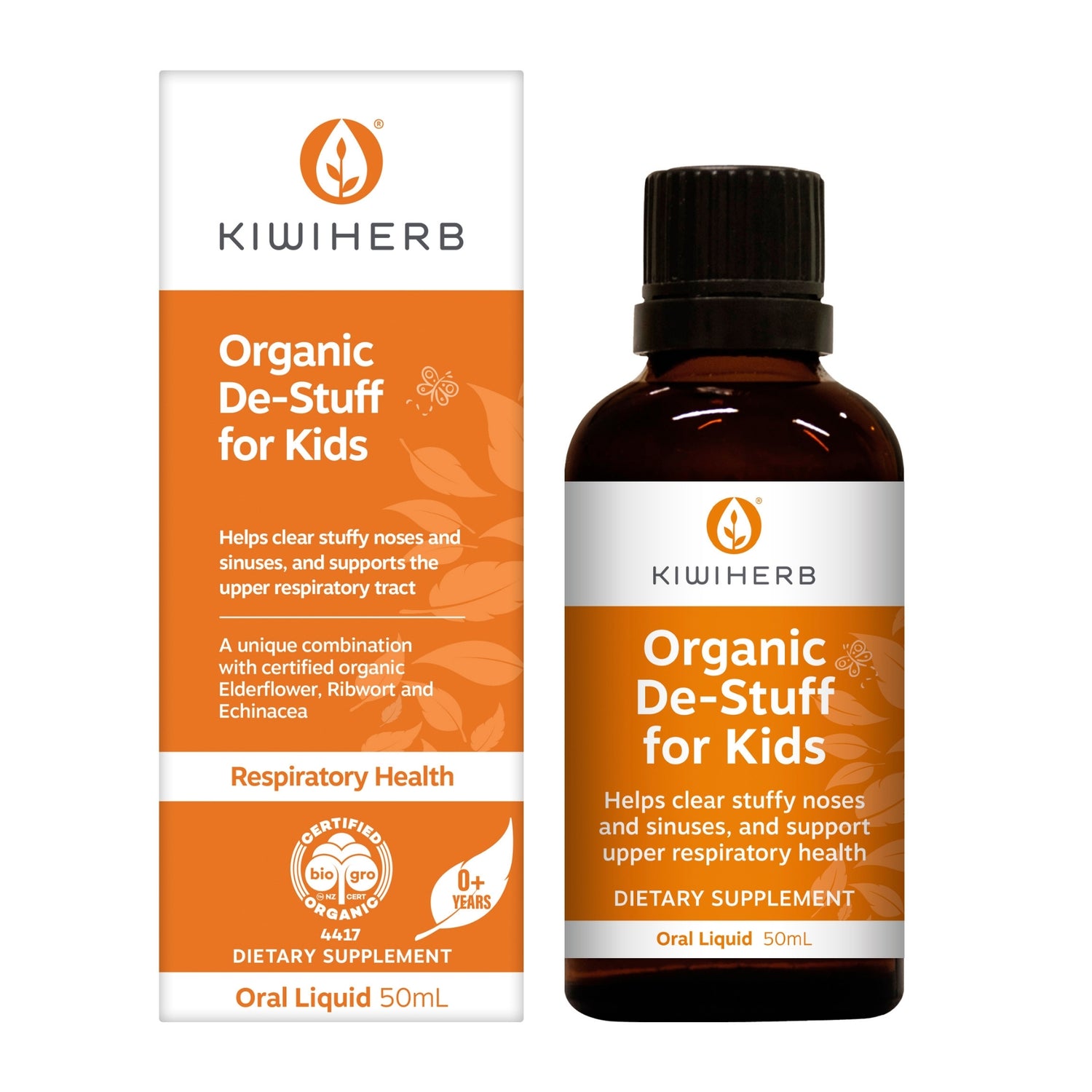Hay fever, also known as allergic rhinitis, is an increasingly common condition that affects millions of people worldwide. In New Zealand a land of flora, it impacts a larger portion of the population. It can be a nuisance, especially when the symptoms hit just as you're trying to enjoy the great outdoors. The impact of hay fever is not just physical; it can affect your mental wellbeing too, as constant discomfort can lead to frustration and fatigue. Understanding the causes and finding effective relief for hay fever can significantly improve your quality of life. By understanding the full scope of hay fever, you can better prepare yourself to combat its effects.
What is hay fever?
Hay fever is an allergic reaction to airborne substances such as pollen, dust mites, or pet dander. These allergens trigger your immune system to react, leading to symptoms that can range from mild to severe. Unlike the common cold, hay fever is not caused by a virus and thus does not include symptoms like fever or body aches. While it can occur year-round, many people experience heightened symptoms during specific seasons, particularly spring and summer, due to increased pollen levels. This seasonality can make it particularly challenging for those who love outdoor activities during these times.
Common symptoms of hay fever
Hay fever symptoms can vary in intensity and duration and often include:
- Sneezing: Frequent and uncontrollable sneezing is a hallmark symptom of hay fever. It can be disruptive to daily activities and social interactions.
- Nasal congestion: A blocked or runny nose is common, leading to discomfort and difficulty breathing. This congestion can sometimes lead to sinus pressure and headaches.
- Itchy eyes, nose and throat: Persistent itching can be quite irritating and may lead to further symptoms like a sore throat or eye irritation. This can also manifest in itchy skin.
- Watery eyes: Excessive tearing can occur as a response to allergens, often leading to blurred vision and discomfort.
- Fatigue: Constant exposure to allergens can lead to fatigue or a feeling of being unwell. This can affect concentration and productivity, and impact work or study.
These symptoms can significantly impact daily life, making it essential to find effective ways to manage them. Understanding these symptoms is the first step in identifying and dealing with hay fever effectively.
Causes of hay fever
Understanding what triggers your hay fever is crucial in managing it effectively. Knowing the specific allergens that cause your symptoms can help you avoid them and reduce the frequency and severity of your reactions.
Pollen allergies
Pollen is one of the most common causes of hay fever. Trees, grasses, and weeds release tiny pollen particles into the air to fertilise other plants. During peak pollen seasons, these particles can be found in high concentrations in the air, making it difficult for allergy sufferers to avoid them. For those with pollen allergies, inhaling these particles can trigger an allergic reaction. This reaction involves the release of histamines in the body, leading to inflammation and the typical symptoms of hay fever.
Dust mites and pet dander
Dust mites are tiny creatures that thrive in household dust. They prefer warm and humid environments, often found in bedding, upholstery and carpets. Pet dander, on the other hand, consists of tiny, even microscopic, flecks of skin shed by cats, dogs, rodents, birds and other animals with fur or feathers. Both dust mites and pet dander are common indoor allergens that can worsen hay fever symptoms. Regular cleaning and maintenance of living spaces can help reduce exposure to these allergens.
Mould spores
Mould grows in damp and dark places, releasing spores into the air. Bathrooms, basements, and kitchens are common areas where mould can thrive. Inhaling these spores can trigger hay fever symptoms, especially in people sensitive to mould. Keeping these areas dry and well-ventilated can help prevent mould growth and reduce exposure to its spores.
Seasonal allergies in New Zealand
In New Zealand, hay fever is particularly prevalent due to the diverse plant life and varying pollen seasons. The country's unique flora can produce a wide range of pollen types, leading to prolonged allergy seasons. Spring (September to November) is often the worst time for pollen allergies, but it can vary depending on the specific allergens you're sensitive to. This variability means that allergy sufferers need to be particularly vigilant in monitoring pollen counts and managing their symptoms.
Allergy triggers vs cause
The cause of hay fever lies in the underlying malfunction of the immune system, where it mistakenly identifies harmless substances, like pollen or dust, as dangerous and mounts an allergic response. This immune overreaction is rooted in genetic predisposition, immune system imbalance and early-life factors that shape immune tolerance. In contrast, triggers are the external substances that set off symptoms in someone already predisposed to allergies. Common triggers include the factors listed above. While the cause explains why someone has hay fever in the first place, triggers explain what specifically provokes their symptoms. Without the underlying allergic tendency, these triggers would not cause a reaction at all.
Natural relief tips for hay fever
While over-the-counter medications are available, many people prefer natural remedies to alleviate hay fever symptoms. These remedies can be gentler on the body and often come with fewer side effects. Here are some tips that might help:
Kiwiherb hay fever advice
Kiwiherb offers natural herbal remedies specifically designed for hay fever relief. Its products often include a blend of herbs including Echinacea, quercetin, Elderflower, Eyebright, and Ribwort, known for their anti-inflammatory and antihistamine properties. These herbs have been used traditionally to relieve symptoms of allergies and can be a gentle and effective way to manage symptoms. Consulting with a herbalist can also help you find the right combination of herbs for your needs.
Nasal irrigation
Using a saline solution to rinse your nasal passages can help clear allergens and reduce congestion. This practice, often done with a neti pot, can be done daily to maintain clear nasal passages. Nasal irrigation can also help soothe irritated nasal tissues and flush out mucus, providing relief from congestion and sneezing.
Local honey
Some people find relief by consuming local honey. The idea is that by consuming honey produced by bees in your area, you may ingest small amounts of pollen that help build tolerance over time. While scientific evidence is limited, many people report a reduction in symptoms, making it a potentially sweet addition to your allergy management routine. This is called allergen immunotherapy/Desensitisation - where you expose yourself to the allergen in small doses until your body gets used to it and doesn't mount a response. It can be dangerous to some people so use with caution.
Maintain clean air indoors
Using air purifiers and keeping windows closed during high pollen seasons can help reduce allergen exposure indoors. Regular cleaning and using hypoallergenic bedding can also minimise dust mites and pet dander. Ensuring your home has proper ventilation can further reduce the concentration of indoor allergens. Regular vacuuming and home cleaning can also help reduce the dust and pollen quantity.
Dietary adjustments
Incorporating foods rich in omega-3 fatty acids, such as fish and flaxseeds, and foods high in antioxidants like fruits and vegetables, can support your immune system. These nutrients can help reduce inflammation and strengthen your body's defences against allergens. Quercetin, found in apples, onions, and berries, is known for its natural antihistamine properties and can be a valuable addition to your diet. Also, decreasing the amount of high histamine foods can be beneficial to reduce your body’s total exposure to histamine. These foods include avocado, aged cheeses, fermented foods, bone broths, tomatoes and dried fruit.
Managing hay fever effectively
Managing hay fever involves a combination of avoiding known allergens and seeking appropriate treatment. With the right strategies, you can minimise the impact of hay fever on your daily life.
Here are some additional strategies to consider:
Monitor pollen counts
During high pollen seasons, keeping an eye on daily pollen forecasts can help you plan outdoor activities. Staying indoors on days when pollen counts are high can reduce your exposure. Many weather apps and websites offer up-to-date pollen information, allowing you to make informed decisions about when to stay indoors.
Keep windows closed
In your home and car, keep windows closed during peak pollen seasons to prevent allergens from entering your space. Using air conditioning with a clean filter can help maintain a comfortable indoor environment without letting pollen in.
Shower and change clothes
After spending time outdoors, remove shoes at the front door, take a shower and change your clothes to remove pollen that may have collected on you. This practice can prevent pollen from spreading throughout your home and reduce nighttime symptoms, improving your sleep quality.
Consult a healthcare professional
If natural remedies and lifestyle changes aren't enough, it's important to consult a healthcare professional. They can provide guidance on over-the-counter or prescription medications that may be necessary to manage severe symptoms. Allergy testing can also help identify specific triggers, allowing for more targeted treatment. There are also drug side effects and liver problems can give off the same symptoms as hay fever, so it is important to know if it is hay fever or if there needs to be further investigation.
Conclusion
Dealing with hay fever can be challenging, but understanding its causes and taking proactive steps can help you find relief. Whether you choose natural remedies, lifestyle changes, or medical treatments, the key is to find what works best for you. By managing hay fever effectively, you can enjoy the outdoors and your daily activities without the burden of allergy symptoms. Remember, it's always a good idea to consult with a healthcare provider for personalised advice, especially if your symptoms persist or worsen. With the right approach, you can reduce the impact of hay fever and lead a more comfortable and enjoyable life.


